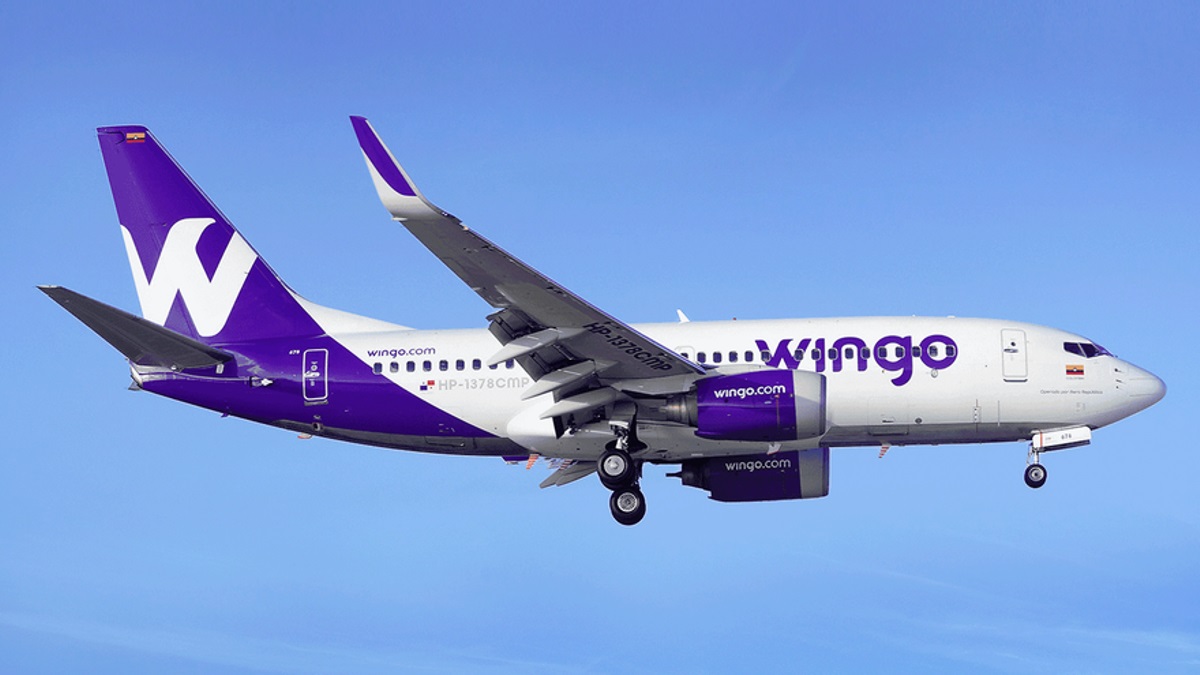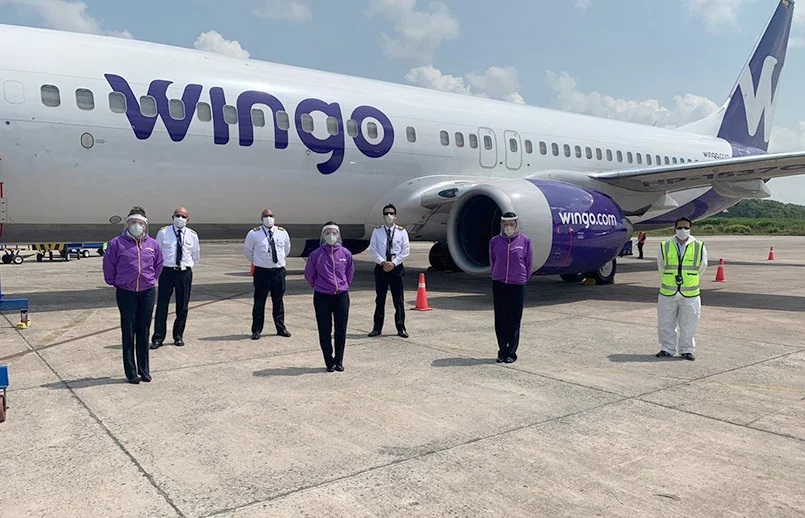


The Argentine Government has authorized the Colombian low-cost airline Wingo to expand its operations and connect the cities of Córdoba, Mendoza and Rosario directly with international destinations without passing through Buenos Aires. Until now, the company only operated the route to or from Ezeiza.
Wingo, which is a part of the Copa Airlines and Copa Airlines Colombia, officially began operations in December 2016, replacing AeroRepública. Headquartered in Bogota, the carrier operates a fleet of nine Boeing B737-800 NG aircraft.

About Wingo's growth, in 2024, the airline offered 3.6 million seats in scheduled frequencies, distributed in almost 20,000 flights, which represents a growth of 11% compared to 2023.
"We had a very positive 2024, with sustained growth in both the supply of seats and the demand for travelers. Not only did we expand our route network, we also enhanced our product with solutions such as Wingo Vacations, Seats Together, Extra Max Chair and Hidden Destination Flight. We thank the more than three million travelers who trusted us and position us more and more as a relevant player in the national air market," said Eduardo Lombana, CEO of Wingo.
Announcing the new development, the Argentine Secretariat of Transportation of the Ministry of Economy authorized the Wingo company to operate both cargo and passenger transport, connecting Córdoba, Mendoza and Rosario. Previously, the company only operated the route to or from Ezeiza.
Argentine Secretary of Transport Franco Mogetta said,
"We continue to open the skies of Argentina. Today we authorize the Colombian low-cost airline, Wingo (Aerorepública SA) to expand its operations in the country, increasing connectivity between the interior of Argentina and the world."
He specified that Wingo will be able to operate flights directly from the airports of Córdoba, Mendoza and Rosario to its counterparts in the Colombian cities of Medellín, Cali, Cartagena, Barranquilla, San Andrés, Pereira and Bucaramanga, with the possibility of also expanding the connection to Panama.
Mogetta emphasized that the deregulation of the airline sector is a significant advance in the history of Argentine aviation. As per him, with less state intervention, the service will improve and be more efficient, which favors healthy competition among airlines.
The measure was made official with the publication in the Official Gazette of provision 04/2025 of the Undersecretariat of Air Transport and, expressly, authorizes the Wingo company to operate international scheduled air transport services for passengers and cargo, in a combined way.
As per the announcement, it's noteworthy that the open skies policy, promoted by the Argentine Government, creates an environment for greater private investment, bringing transparency in the air travel market, making it more competitive without the need for commercial air subsidies.
Argentina also expects that the move is of great strategic relevance for the entire interior of the country, providing greater federal connectivity.
Making it's aviation policy clear, earlier in May 2024, Argentina and Peru signed a Memorandum of Understanding that allows airlines from both countries to operate routes with unlimited frequencies.
Also, this Monday, the signing of a similar agreement between Argentina and Qatar paves the way for the unlimited frequencies with a broader list of routes, and air traffic rights.
